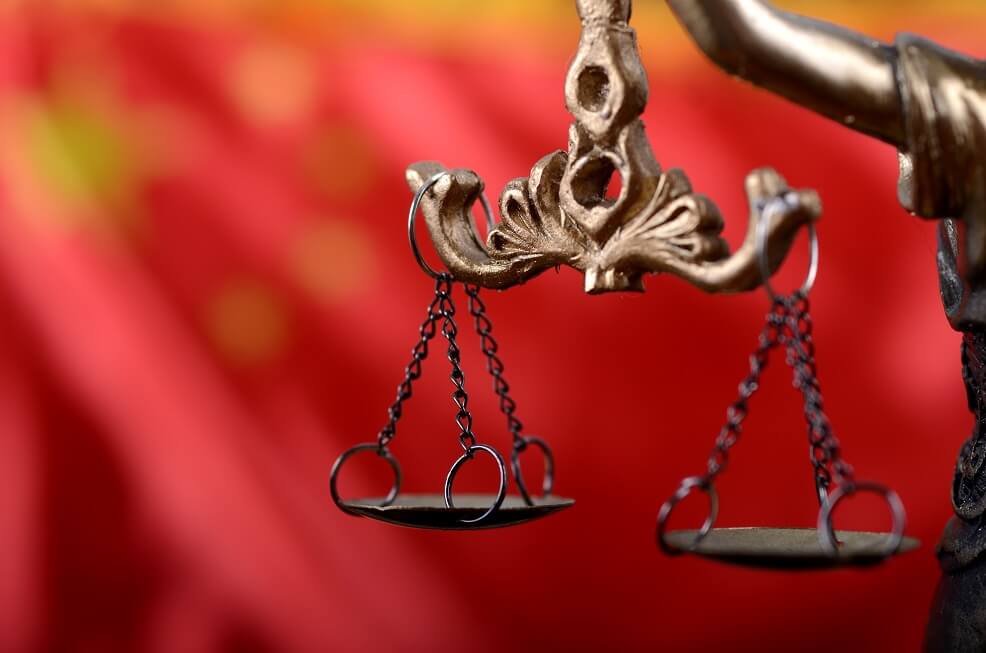The Court of China rules that NFTs represent virtual property and are protected by law

Although a court in China ruled against the claims of a buyer of non-fungible tokens (NFTs), it found that these tokens are virtual property protected by law.
The decision was reached by a court in the city of Hangzhou, capital of the Chinese province of Zhejiang, in a case involving a contract dispute regarding an NFT fundraising sale, said the statement of the court published on Tuesday last week.
The court stated that NFT collections have the properties of property rights such as value, scarcity, controllability, and readability, while also possessing “unique attributes of virtual network property.”
According to the court,
“The contract involved in the matter does not violate the laws and regulations of our country, nor does it violate the actual policy and regulatory guidance of our country to prevent economic and financial risks, and should be protected by the law of our country.”
The NFTs carry the creator’s artistic expression and have the value of related intellectual property rights, it added, while being digital assets created on the blockchain.
“Therefore, NFT digital collections belong to the category of virtual property […] different from tangible or intangible objects in general sales contracts,” it said. “NFT collections, a new type of online virtual property, should be protected by the laws of our country as the subject of transactions between the two parties.”
However, the court also noted that in terms of legal attributes of NFT collections, Chinese law currently does not clearly determine them.
That said, transactions in these types of cases are the same as selling digital goods online, and as such are e-commerce activities – regulated by China’s e-commerce law, the court argued.
Company v. Wang
The statement explained that the defendant in the case is a digital company based in Hangzhou, which operates an e-commerce platform specializing in the sale of digital artwork. On the other side of this legal battle, as a plaintiff, stood the platform’s user referred to by the pseudonym Wang.
What led to the lawsuit is that the platform canceled a purchase of an NFT collection – something Wang claimed was done without his consent.
In February, the company announced that a “NFT digital collection blind box” would be sold in limited quantities. It also stated that a mobile phone number “in accordance with the real name authentication must be filled in” when purchasing, while invalid orders without real name authentication, incorrect personal information, etc. would be eliminated and the purchase refunded.
Wang claimed that he bought such a box for ¥999 ($143) after filling in his mobile number and personal information, but that the company never delivered it, returning the money to Wang after 10 days instead. Therefore, he requested that the contract be fulfilled or that a compensation of ¥99,999 ($14,325) be paid.
The company, meanwhile, claimed that the mobile phone number and ID number provided by Wang when ordering were inaccurate, so it was refunded. Furthermore, according to the company, the contract had not been entered into at the time, and even if it had been, it would have been terminated under the agreement due to inaccurate information provided by the buyer. Finally, the digital box has already been sold, so sending it to Wang after the lawsuit would be impossible.
Claim rejected
The announcement by the company, with all the instructions it gave, was a formal invitation to interested parties to make an offer, the court said. When Wang “submitted” the order on a blind box, it formed a binding contractual agreement between the two parties.
But. The announcement made it clear that the platform had the right to terminate any contract in case of inaccurate information. Based on the details of the order provided by Wang, “the fourth digit of the mobile phone number and the sixth digit of the ID card he filled out did not meet the requirements,” the court said. This, along with the refund sent to Wang, gave the company the right to terminate the contract.
While Wang asked for the contract to be fulfilled, there was no legal basis for it as there was no longer a contract. Since there was no breach of contract, Wang’s alternative claim for ¥99,999 “had no corresponding factual and legal basis”, and the court did not uphold it.
Therefore, the court rejected Wang’s claim.
____
Learn more:
– Recent Chinese Bitcoin Court Decision “Not an Isolated Case” and Part of “an Ongoing Trend”
– ETH Hacker Gets 10 Years in Jail, But BTC Theft ‘Can’t Be Criminal’ in China
– Chinese man uses digital yuan to pay legal fine in legal first
– Chinese Courts Condemn Crypto Miners, Scams Ring as Enforcement Continues


